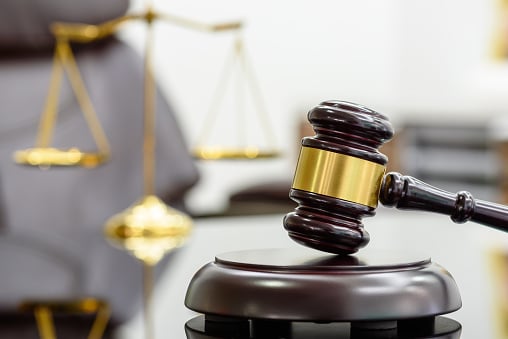Officials concerned about Medicaid law conflicts
Some state officials and lawmakers are concerned that New Hampshire’s incoming Medicaid premium system may conflict with provisions in Congress’ One Big Beautiful Bill Act.

The 15 players on the Dartmouth College men’s basketball team fit the definition of employees and have the right to form a union, an official with the National Labor Relations Board ruled Monday.
The 25-page ruling is the latest in the thorny legal issue of whether student athletes at colleges can unionize. In 2015, the NLRB rejected a bid by Northwestern University football players to unionize, but on narrow grounds that left open the prospect for other teams to do so.
The ruling found that the teammates are employees of the college, a key decision if they are to unionize.
“Because Dartmouth has the right to control the work performed by the Dartmouth men’s basketball team, and the players perform that work in exchange for compensation, I find that the petitioned-for basketball players are employees within the meaning of the (National Labor Relations) Act,” wrote Laura A. Sacks, Boston regional director of the NLRB.
In an email issued Tuesday morning, Dartmouth College said it will appeal the decision to the NLRB.
Spokeswoman Diana Lawrence said costs of Dartmouth College athletics far exceeds program revenues. She also stressed that the college does not provide athletic scholarships, only scholarships based on financial need.
“Dartmouth has a long and proud history of productive relationships with unions on campus, always negotiates in good faith when appropriate, and respects the rights of workers to unionize. However, we do not believe these students are employees,” Lawrence wrote.
The Service Employees International Union, which obtained signed union authorization cards from the players, hailed the decision.
“This is an historic step forward for economic justice, racial justice, and union rights — not just for college athletes but millions of young people across our country whose work is not valued like it should be,” said Mary Kay Henry, SEIU president.
The players, she said, represent one of the most pro-union generations in American history.
Christopher Peck, president of SEIU Local 560, said the local will support the player in any appeal to the NLRB.
The college had insisted the players were not employees and no different from other students such as musicians, actors, journalists and members of club-sport teams who have responsibilities at the college.
But in the ruling, Sacks pointed to many factors that make them employees:
Sacks also rejected arguments that a more appropriate bargaining unit would entail all Ivy League schools.
She called for an election, which will be held by secret ballot at the college’s Human Resources Department. The union and college will have to agree upon a date for the election.
Sacks gave Dartmouth until Wednesday, Feb. 7, to provide a list of eligible athlete-employees and noted the law requires Dartmouth to post notice of the election.
Dartmouth has 10 days to file an appeal with the full NLRB, but the election can still move forward.
In the 2015 Northwestern University case, the NLRB rejected unionization, noting that Northwestern is the only private university in the Big 10, and unionization would not promote labor stability. The board said the other Big 10 schools would be subject to different state laws, which control unionization of public employees.
The NLRB has also found that graduate students fit the definition of work.
“Like the graduate student research assistants and teaching assistants in Columbia University, and like the football players in Northwestern University, the basketball players at issue here perform work which benefits Dartmouth,” Sacks wrote.
Three related cases are pending, one filed against University of Southern California over the proper classification of walk-on athletes, an unfair labor practice charge against Northwestern, and a charge against the NCAA as a whole by the College Basketball Players Association.
The Dartmouth team’s overall record is 5-14, and their next game is Saturday afternoon at Harvard University.